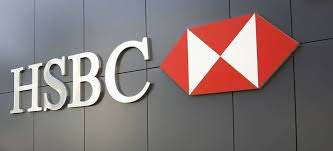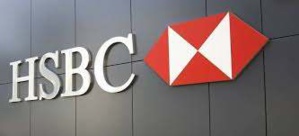After reports emerged about HSBC, Standard Chartered Hong Kong and some other banks were engaged in moving large sums of money that had allegedly been illegally amassed over a period of almost two decades without any alerts being sounded about the origins of the money, shares of HSBC and Standard Chartered crashed on Monday in Hong Kong.
Leaked Suspicious activity reports (SARs) that had been filed by banks and other financial companies with the United States Department of Treasury’s Financial Crimes Enforcement Network (FinCen) formed the basis of the multiple reports published by BuzzFeed and other media articles.
The reports clearly highlight the issues faced by regulatory and financial institutions in their efforts to prevent the movement of illegally amassed money even as regulators have imposed penalties worth billions of dollars imposed on banks and similar amounts being spent in investments in the past decade.
There was a 4.4 per cent drop in the shares of HSBC in Hong Kong on Monday which was the lowest for the shares since May 1995. Since the beginning of the year, the value of the company’s stocks have almost halved.
On the other hand, there was a 3.8 per cent fall in the price of the shares of StanChart on Monday to HK$35 which was the lowest for the lender since May 25 this year. The Hang Seng Index was down nearly 1 per cent.
In recent years, settlements of charges of violation of US sanctions on Iran and anti-money laundering rules have resulted in the London headquartered HSBC and StanChart, as well as other global banks, paying up billions of dollars in fines.
Currently the two British banks, both of which have Asia as its crucial source of profits, are in a tight spot because of the economic impact of the novel coronavirus pandemic that originated in China, the tensions between the United States and China and the political turmoil in Hong Kong and the latest media reports have made the situation tighter for the banks.
The requirement of banks and lenders to enhance their due diligence on their customers is demonstrated by the leaked files, it it is true, said Bharath Vellore, APAC managing director at Accuity, a financial crime and sanctions lists screening software provider.
“It also strengthens the recent regulatory focus on the banks to identify sources of funds and beneficial owners of their customers,” he added.
BuzzFeed News had obtained more than 2,100 SARs. These documents are in themselves not proof of wrongdoing. The documents were then shared by BuzzFeed with the International Consortium of Investigative Journalists (ICIJ) and other media organizations.
Information of more than $2 trillion worth of transactions between 1999 and 2017 were detailed in the files. These documents were filed by internal compliance departments of financial institutions as suspicious.
The leaked documents were just a small part of the reports filed with FinCEN, the ICIJ reported. It also reported that there were five banks that appeared most often in the documents and HSBC and StanChart were among them.
(Source:www.financialpost.com)
Leaked Suspicious activity reports (SARs) that had been filed by banks and other financial companies with the United States Department of Treasury’s Financial Crimes Enforcement Network (FinCen) formed the basis of the multiple reports published by BuzzFeed and other media articles.
The reports clearly highlight the issues faced by regulatory and financial institutions in their efforts to prevent the movement of illegally amassed money even as regulators have imposed penalties worth billions of dollars imposed on banks and similar amounts being spent in investments in the past decade.
There was a 4.4 per cent drop in the shares of HSBC in Hong Kong on Monday which was the lowest for the shares since May 1995. Since the beginning of the year, the value of the company’s stocks have almost halved.
On the other hand, there was a 3.8 per cent fall in the price of the shares of StanChart on Monday to HK$35 which was the lowest for the lender since May 25 this year. The Hang Seng Index was down nearly 1 per cent.
In recent years, settlements of charges of violation of US sanctions on Iran and anti-money laundering rules have resulted in the London headquartered HSBC and StanChart, as well as other global banks, paying up billions of dollars in fines.
Currently the two British banks, both of which have Asia as its crucial source of profits, are in a tight spot because of the economic impact of the novel coronavirus pandemic that originated in China, the tensions between the United States and China and the political turmoil in Hong Kong and the latest media reports have made the situation tighter for the banks.
The requirement of banks and lenders to enhance their due diligence on their customers is demonstrated by the leaked files, it it is true, said Bharath Vellore, APAC managing director at Accuity, a financial crime and sanctions lists screening software provider.
“It also strengthens the recent regulatory focus on the banks to identify sources of funds and beneficial owners of their customers,” he added.
BuzzFeed News had obtained more than 2,100 SARs. These documents are in themselves not proof of wrongdoing. The documents were then shared by BuzzFeed with the International Consortium of Investigative Journalists (ICIJ) and other media organizations.
Information of more than $2 trillion worth of transactions between 1999 and 2017 were detailed in the files. These documents were filed by internal compliance departments of financial institutions as suspicious.
The leaked documents were just a small part of the reports filed with FinCEN, the ICIJ reported. It also reported that there were five banks that appeared most often in the documents and HSBC and StanChart were among them.
(Source:www.financialpost.com)






